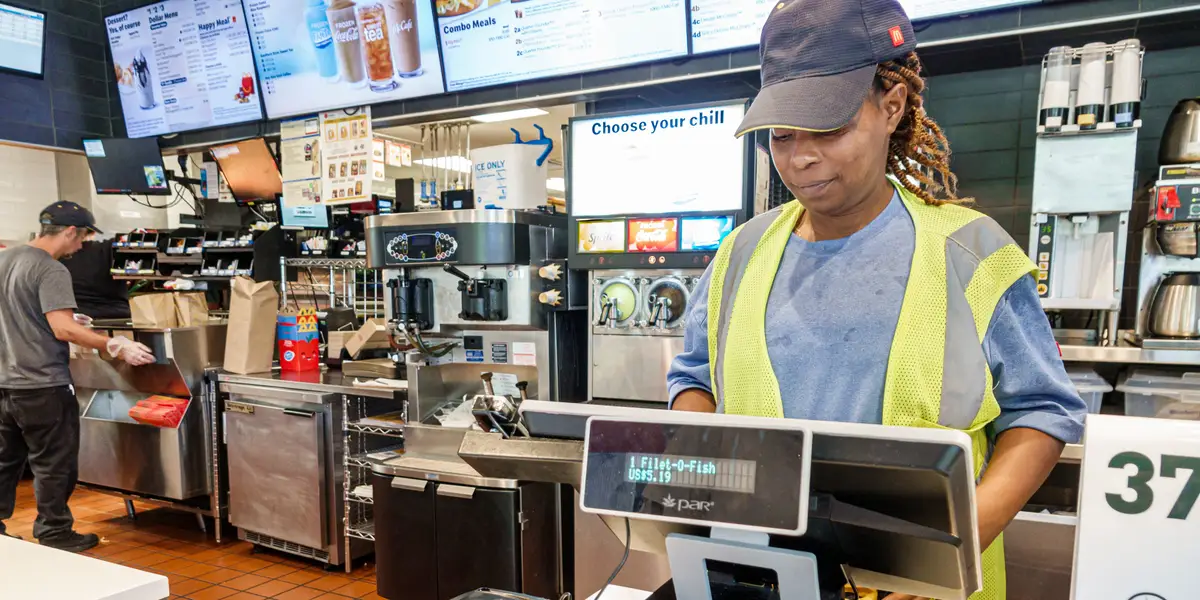California fast-food workers are set to see a boost in their paychecks as the state’s new law mandates a minimum wage of $20 per hour, beginning Monday.
The move aims to uplift a workforce that has long grappled with low wages, but it also poses challenges for business owners navigating an already tough economic landscape.
Join our WhatsApp ChannelIngrid Vilorio, an immigrant who has worked in fast food since arriving in the US, expressed relief at the wage increase. “The $20 raise is great. I wish this would have come sooner,” she said. “Because I would not have been looking for so many other jobs in different places.”
However, for franchise owners like Alex Johnson, who operates several Auntie Anne’s Pretzels and Cinnabon restaurants, the law presents a harsh reality.
Johnson anticipates significant financial strains, estimating an additional cost of about $470,000 annually due to increased wages. To cope, he plans to hike prices at his stores by up to 15 percent and has halted expansion plans in the state.
READ ALSO: Reactions From Stakeholders Force Nigerian Govt To Temporarily Suspend Expatriate Employment Levy
“I try to do right by my employees. I pay them as much as I can. But this law is hitting our operations hard,” Johnson lamented. “I have to consider selling and even closing my business.”
The wage increase reflects a broader trend in California’s efforts to address income inequality. Over the past decade, the state has steadily raised the minimum wage, doubling it for most workers to $16 per hour. However, concerns persist regarding its impact on businesses and employment levels.
The new minimum wage law specifically targets fast-food establishments, excluding those operating within grocery stores and those primarily selling bread as a standalone item. Initially, confusion arose regarding the exemption for bread-focused restaurants like Panera
Bread. However, clarification from the Newsom administration confirms that the wage increase applies to such establishments as well.
Despite the challenges it poses for businesses, the wage hike signifies a step towards better compensation and recognition for the predominantly adult workforce in the fast-food industry.
As California grapples with the delicate balance between supporting workers and sustaining businesses, the $20 minimum wage sets a precedent with implications beyond the state’s borders.
Emmanuel Ochayi is a journalist. He is a graduate of the University of Lagos, School of first choice and the nations pride. Emmanuel is keen on exploring writing angles in different areas, including Business, climate change, politics, Education, and others.




















Follow Us